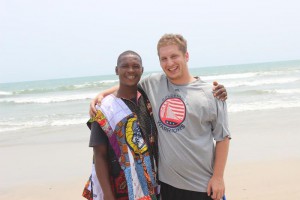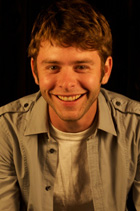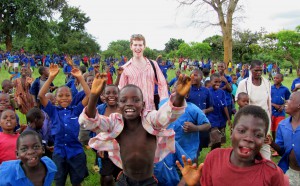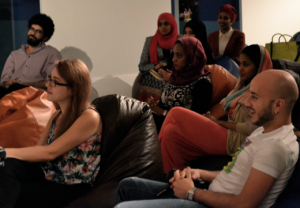Katherine Cloutier is a 2012-2013 Fulbright-mtvU alumna, currently finishing her PhD in ecological-community psychology. Her Fulbright-mtvU grant was a participatory research project that was done in collaboration with a sexual health education program and secondary school students.
Matt Saleh is a 2015-2016 Fulbright U.S. Student in Barbados whose research focuses on collaboration and service coordination among community service providers, government agencies, and secondary schools in school-to-work transition for youth with disabilities.
After learning of the overlap between our two Fulbright projects and experiences in Barbados, we decided to sit down and try to put some of the commonalities into words for the benefit of future Fulbright Students. On the shores of Accra Beach over refreshments at the Tiki Bar, we quickly got to work.
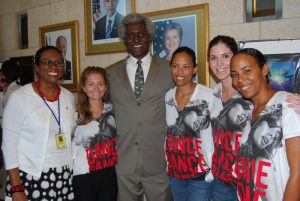
Katherine with Lisa Thompson from PEPFAR (left); Katherine Cloutier, 2012-2013, Barbados, with previous U.S. Ambassador Larry Palmer; and dance4life partners Maisha Hutton, Leila Raphael, and Shakira Emtage-Cave (middle to right) at the 2012 World AIDS Day Event where the participatory action research project was presented by the secondary school students.
Katherine Cloutier: I came to Barbados through a series of planned accidents, I suppose. I remember walking into the office of the Fulbright Program Adviser at Michigan State University, my alma mater, and telling him, “I’m going to get that scholarship; it’s just a matter of when.” The next thing I knew, I was walking off a plane in Barbados on a humid September day in 2012, about to begin my year as a Fulbright-mtvU grantee. Two individuals from my host community partner, dance4life (a sexual health education and youth empowerment program), were waiting for me at the airport. I had never been to the Caribbean before, let alone this particular rock, but I felt so welcomed by these two. Here I am, years later, and I am back in Barbados, my second home.

